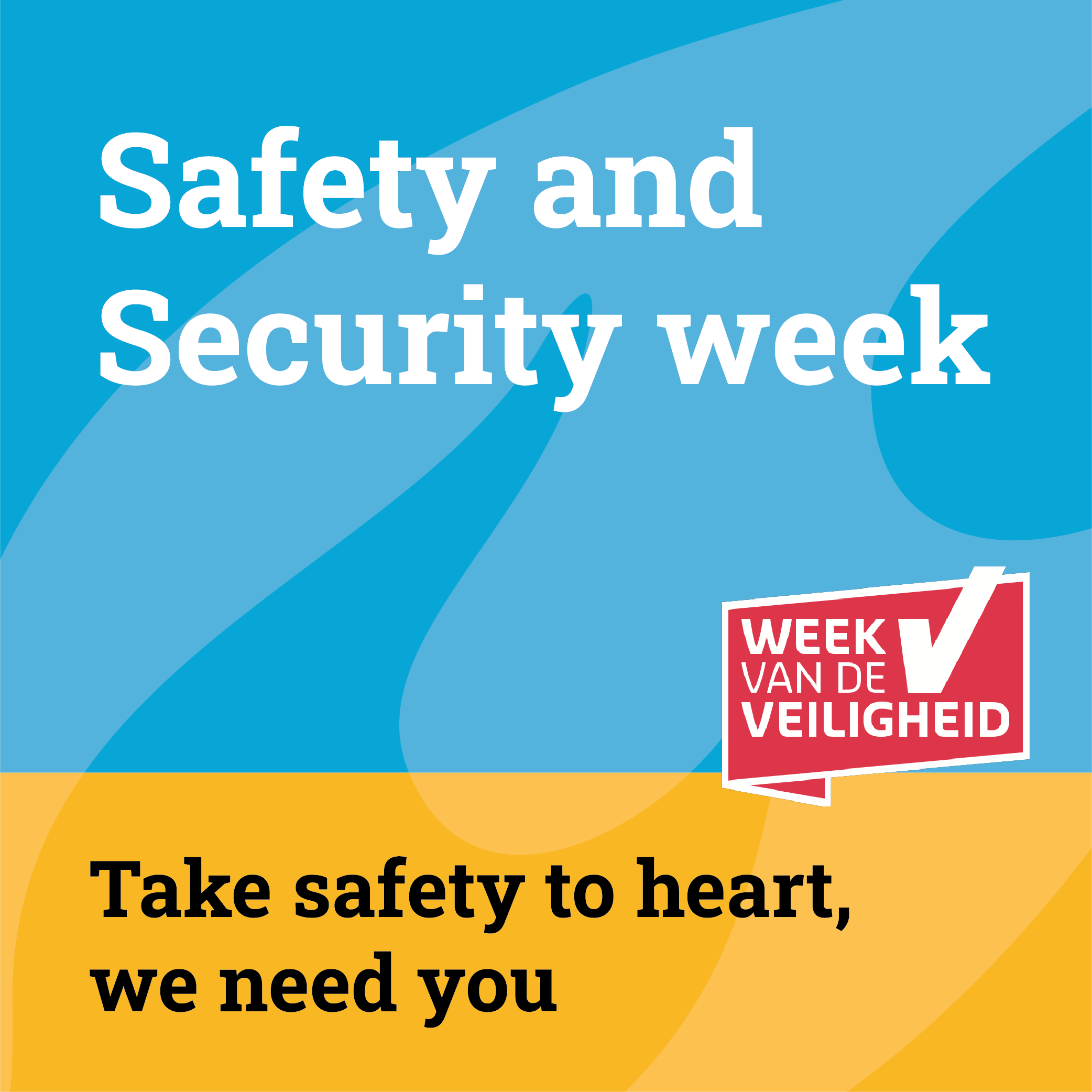The Safety & Security Week took place from October 7 to 12, 2024. Thanks to those who participated this week. And let us maintain the focus on safety all year rouind. TU Delft, together with the Department of Integral Security, CREFM, HSE and ICT Security, has participated in this national initiative for the seventh time this year.
Year round we ask your attention for various security themes that play in and around the TU Delft campus. Together we ensure that the campus is a safe environment to study, work, research and relax.
The 2024 program consisted of the following in short:
- Ask your questions regarding Knowledge Security! Walk-in sessions
- Masterclass: Aggression and violence on campus: Navigating between reality and myths (Dr. Natalie van de Wal and Drs. Erica Kinkel)
- Safety Square
- Predict and Prevent: Masterclass in Safety, Crowd and Crisis Management (Dr. Ir. Sascha Hoogendoorn-Lanser)
- Pub quiz Electrical Safety
- A safer campus for YOU (Workshop)
- How to use Safety Data Sheets & enhance your laboratory skills (Dr. Sara Ottoboni)
- Safety of Lithium-ion batteries (Henk Brans Msc and Dr. André Verbeek)
- Security & Privacy symposium (Bert Hubert, Mr. Ir. Arnoud Engelfriet, Mr. Rachel Marbus and Jérôme Zijderveld)

Masterclass: Aggression and violence on campus: Navigating between reality and myths
In this masterclass we will discuss facts and myths about aggression and violence at the university campus and in similar situations. We will teach you how to recognize distortions of reality in the media and in your own experience. We will give you tips on how to feel less anxious at campus and how to prevent aggression as much as possible. We will also show you what happens in our brain and body while experiencing stress in conflict situations. Finally, we will discuss how (easy) contradictions and conflicts between groups can arise, what the role and influence of our own behaviour is in this respect and how we can deal with this in real life.
By: Dr. Natalie van der Wal and Drs. Erica Kinkel

Predict and Prevent: Masterclass in Safety, Crowd and Crisis Management
Wondering how you can get a grip on the increasing crowds in cities and at events? In this masterclass you will discover how to predict and prevent crises. Cities are becoming increasingly busy and everything does not always run smoothly at events. Chaos regularly arises in a shopping street, it becomes too busy at an event, or the atmosphere changes during a demonstration. The MICD and TU Delft are investigating which factors are essential to predict crowds and avoid crises.
If a disaster does occur, quick intervention is crucial to limit the consequences and alleviate suffering. Preventing restless crowds is of great importance for municipalities, police and other authorities. If an unsafe situation does arise, they must intervene quickly to prevent escalation and ensure safety. AI can help with this by recognizing patterns, quickly analyzing data, and drawing up scenarios, while the final decisions always lie with people.
The knowledge gained about extreme crowds can also be applied in everyday situations, such as on a busy Monday morning with many cyclists, pedestrians and the new tram on campus. This way we ensure that everyone can move around campus safely.
By: Dr. Ir. Sascha Hoogendoorn-Lanser
TU Delft Emergency number: in case of emergency call 015 27 88 888
Most incidents and emergencies on campus must be reported immediately to the TU Delft control room. These can be reported 24 hours a day, 7 days a week. Upon receiving a report, the control room operator takes the necessary action, such as alerting the in-house emergency response teams and emergency services and any other stakeholders or deploying the TU Delft crisis team. You can also call the TU Delft control room if you’re worried for your safety or that of someone else. Please note: If you call 112, your call will be directed to the regional control room of the police, ambulance service and fire service, and your report will not be passed to the TU Delft control room.

